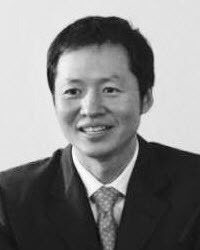[Management in Korea] Chaebol need to ask: ‘Are we next?’
By Korea HeraldPublished : April 28, 2019 - 13:55
Management in Korea is a regular column written by the members of Egon Zehnder Seoul, touching on various aspects of Korean enterprises and business leaders and offering management tips. -- Ed.
The recent ouster of Cho Yang-ho from the board of Korean Air, shortly before his death and after a series of leadership shortcomings including alleged misuse of company funds, is more than a turning point for one of Korea’s most visible companies.
Even though the company had kept Cho as chairman (his son, Cho Won-tae was appointed as new chairman Wednesday), the fact that he was removed from the board signaled the beginning of a fundamental shift in the balance of power between chaebol and their shareholders -- a shift that may well have implications for the way chaebol CEOs are selected.
The recent ouster of Cho Yang-ho from the board of Korean Air, shortly before his death and after a series of leadership shortcomings including alleged misuse of company funds, is more than a turning point for one of Korea’s most visible companies.
Even though the company had kept Cho as chairman (his son, Cho Won-tae was appointed as new chairman Wednesday), the fact that he was removed from the board signaled the beginning of a fundamental shift in the balance of power between chaebol and their shareholders -- a shift that may well have implications for the way chaebol CEOs are selected.


An essential element of President Moon Jae-in’s chaebol strategy was to change the management of Korea’s National Pension Service, allowing the world’s third-largest sovereign pension fund to be a powerful voice for corporate governance reform. As a result, it was NPS’ “no” votes that led to Cho Yang-ho losing his board seat. NPS is also pushing for changes in other Korean companies, as are foreign activist investors, including Paul Singer’s Elliot Management, which has been railing against underperformance in Korean companies since he took aim at Samsung four years ago.
So far, these activist investors have focused on traditional shareholder issues such as board elections, dividends and major transactions -- and there is much to keep investors occupied here. One wonders, for example, if a louder investor outcry over the overleveraged acquisitions at the Kumho Asiana Group a decade ago might have prevented the recent forced sale of Asiana Airlines to stem the group’s liquidity problems.
Not just governance, but leadership
There is reason to believe that emboldened institutional investors will press beyond their current agenda. After all, the problems at Korean Air and Asiana were ultimately about more than corporate governance — they were about leadership. And the importance of leadership has become more pronounced at a time when competition is truly global and as social media brings every company under continuous scrutiny. Not long ago, for example, after Cho Hyun-ah endlessly berated a flight attendant for serving her macadamia nuts in a bag rather than on a plate, the situation might have been handled quietly. Instead, it leaked from an online employee forum to the media, and thus further weakened her father’s position.
Following Chairman Cho’s death, Cho Won-tae, the president of Korean Air and Cho Yang-ho’s son, took his place as chairman of the company. Whether Cho Won-tae is the right choice to lead the airline at this point in its history remains to be seen. The real question is for how much longer chaebol will be able to handle CEO succession as a private, dynastic matter rather than as the result of a deliberate, objective process. For the moment, institutional investors have yet to take issue with his promotion. According to news reports, the largest impediment to Cho Won-tae’s elevation comes from the effects of inheritance tax on his ownership stake. But now that institutional investors have become more emboldened, it is very likely that CEO appointments will eventually come under scrutiny.
The power of ‘thinking like an activist’
Boards in countries where activist investors have an established history of agitating for change have learned to “think like an activist” and adjust their policies before they attract investor attention.
Chaebol boards should now prepare to have their CEO choices withstand examination. They can do so by adopting the practices of well-run family businesses in other parts of the world. These include electing more independent members to the board to give it stronger oversight capabilities; developing a formal, objective process for developing internal CEO candidates; benchmarking those internal candidates against external peers; and including external candidates in the process of identifying a successor.
Until the events at Korean Air, it was impossible to imagine a chaebol chairman losing his board seat in a shareholder vote, let alone due to the objection of a Korean investor.
But now that this has happened, chaebol boards have the opportunity to evolve their processes before they are forced to. Adopting leadership succession planning in line with global best practices would send a powerful and welcome message to increasingly active institutional investors, while putting chaebol on more solid footing for today’s highly dynamic business environment.
By Eugene Kim and Nam You-sun
Eugene Kim is the managing partner of advisory firm Egon Zehnder Seoul. He can be reached at Eugene.Kim@egonzehnder.com. Nam You-sun is the research analyst at Egon Zehnder Seoul. She can be reached at Yousun.nam@egonzehnder.com. -- Ed.

So far, these activist investors have focused on traditional shareholder issues such as board elections, dividends and major transactions -- and there is much to keep investors occupied here. One wonders, for example, if a louder investor outcry over the overleveraged acquisitions at the Kumho Asiana Group a decade ago might have prevented the recent forced sale of Asiana Airlines to stem the group’s liquidity problems.
Not just governance, but leadership
There is reason to believe that emboldened institutional investors will press beyond their current agenda. After all, the problems at Korean Air and Asiana were ultimately about more than corporate governance — they were about leadership. And the importance of leadership has become more pronounced at a time when competition is truly global and as social media brings every company under continuous scrutiny. Not long ago, for example, after Cho Hyun-ah endlessly berated a flight attendant for serving her macadamia nuts in a bag rather than on a plate, the situation might have been handled quietly. Instead, it leaked from an online employee forum to the media, and thus further weakened her father’s position.
Following Chairman Cho’s death, Cho Won-tae, the president of Korean Air and Cho Yang-ho’s son, took his place as chairman of the company. Whether Cho Won-tae is the right choice to lead the airline at this point in its history remains to be seen. The real question is for how much longer chaebol will be able to handle CEO succession as a private, dynastic matter rather than as the result of a deliberate, objective process. For the moment, institutional investors have yet to take issue with his promotion. According to news reports, the largest impediment to Cho Won-tae’s elevation comes from the effects of inheritance tax on his ownership stake. But now that institutional investors have become more emboldened, it is very likely that CEO appointments will eventually come under scrutiny.
The power of ‘thinking like an activist’
Boards in countries where activist investors have an established history of agitating for change have learned to “think like an activist” and adjust their policies before they attract investor attention.
Chaebol boards should now prepare to have their CEO choices withstand examination. They can do so by adopting the practices of well-run family businesses in other parts of the world. These include electing more independent members to the board to give it stronger oversight capabilities; developing a formal, objective process for developing internal CEO candidates; benchmarking those internal candidates against external peers; and including external candidates in the process of identifying a successor.
Until the events at Korean Air, it was impossible to imagine a chaebol chairman losing his board seat in a shareholder vote, let alone due to the objection of a Korean investor.
But now that this has happened, chaebol boards have the opportunity to evolve their processes before they are forced to. Adopting leadership succession planning in line with global best practices would send a powerful and welcome message to increasingly active institutional investors, while putting chaebol on more solid footing for today’s highly dynamic business environment.
By Eugene Kim and Nam You-sun
Eugene Kim is the managing partner of advisory firm Egon Zehnder Seoul. He can be reached at Eugene.Kim@egonzehnder.com. Nam You-sun is the research analyst at Egon Zehnder Seoul. She can be reached at Yousun.nam@egonzehnder.com. -- Ed.

-
Articles by Korea Herald




















![[Today’s K-pop] BTS pop-up event to come to Seoul](http://res.heraldm.com/phpwas/restmb_idxmake.php?idx=642&simg=/content/image/2024/04/17/20240417050734_0.jpg&u=)